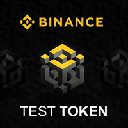-
 Bitcoin
Bitcoin $96,359.5529
0.20% -
 Ethereum
Ethereum $2,812.8874
4.58% -
 XRP
XRP $2.5892
0.71% -
 Tether USDt
Tether USDt $1.0002
0.03% -
 BNB
BNB $664.6300
1.32% -
 Solana
Solana $172.0998
0.08% -
 USDC
USDC $1.0002
0.02% -
 Dogecoin
Dogecoin $0.2466
1.37% -
 Cardano
Cardano $0.7828
2.86% -
 TRON
TRON $0.2422
1.86% -
 Chainlink
Chainlink $18.0261
3.32% -
 Avalanche
Avalanche $25.6599
2.87% -
 Sui
Sui $3.4049
2.24% -
 Stellar
Stellar $0.3353
2.65% -
 Litecoin
Litecoin $127.3333
0.12% -
 Toncoin
Toncoin $3.7792
3.29% -
 Shiba Inu
Shiba Inu $0.0...01572
2.89% -
 Hedera
Hedera $0.2153
0.64% -
 UNUS SED LEO
UNUS SED LEO $9.7397
0.13% -
 MANTRA
MANTRA $8.6824
13.45% -
 Hyperliquid
Hyperliquid $24.2831
0.06% -
 Polkadot
Polkadot $5.1038
0.36% -
 Bitcoin Cash
Bitcoin Cash $331.4356
4.51% -
 Bitget Token
Bitget Token $5.0698
1.38% -
 Ethena USDe
Ethena USDe $0.9998
0.10% -
 Uniswap
Uniswap $9.1583
4.12% -
 Dai
Dai $1.0001
0.01% -
 Monero
Monero $236.2980
1.35% -
 NEAR Protocol
NEAR Protocol $3.4734
0.18% -
 Pepe
Pepe $0.0...09665
3.94%
Inventory of the five major CYBER currency exchanges
Cryptocurrency exchanges offer a wide range of features, from user-friendly platforms for beginners to advanced tools for seasoned traders, catering to the diverse needs of digital asset investors.
Dec 18, 2024 at 07:48 pm

Comprehensive Overview: Inventory of the Five Major Cryptocurrency Exchanges
This comprehensive guide delves into the intricate world of cryptocurrency exchanges, providing an in-depth analysis of the five major players in the industry. We will explore their key features, security protocols, trading volume, fees, and customer support to equip you with the essential knowledge to make informed decisions when selecting an exchange for your digital asset trading needs.
Key Points:
- Binance: Leading exchange with ample coin selection, advanced trading tools, and low fees.
- Coinbase: User-friendly platform, renowned for its strong security and compliance measures.
- Kraken: Exchange for professional traders, offering diverse markets, competitive fees, and OTC services.
- Gemini: Security-focused exchange, regulated by the NYDFS, with high withdrawal limits.
- Bitstamp: Established exchange with long-standing reputation, support for institutional investors.
1. Binance: The Crypto Giant
Binance, the undisputed leader in the cryptocurrency exchange market, has amassed a loyal user base and maintains a dominant market share. Its strengths lie in its:
- Vast Coin Selection: Binance offers an extensive range of cryptocurrencies, exceeding 600 coins and tokens, catering to a wide spectrum of traders and investors.
- Advanced Trading Features: Binance's platform provides advanced tools for technical analysis, charting, and order types, ideal for experienced traders seeking customized trading strategies.
- Low Fees: Binance boasts some of the lowest transaction fees in the industry, incentivizing traders to execute trades frequently while minimizing expenses.
- Global Reach: Binance operates globally, supporting users in over 180 countries, facilitating seamless cross-border transactions.
- Binance Coin (BNB): Binance's native token, BNB, grants discounts on trading fees, providing users with additional savings.
2. Coinbase: The User-Friendly Gateway
Coinbase has established itself as a preferred choice for novice traders and investors seeking a secure and beginner-friendly platform. Its key attributes include:
- Intuitive Interface: Coinbase prioritizes user experience, offering a streamlined and easy-to-navigate interface, ideal for those new to cryptocurrency trading.
- Robust Security: Coinbase adheres to rigorous security measures, employing industry-leading practices to safeguard user funds and personal information.
- Strong Compliance: Coinbase is registered as a money services business (MSB) and meets regulatory requirements in multiple jurisdictions, ensuring compliance with financial regulations.
- Limited Coin Selection: While Coinbase's coin selection is growing, it remains considerably narrower than that of Binance, catering primarily to popular cryptocurrencies.
- Higher Fees: Coinbase generally charges higher transaction fees compared to other exchanges, potentially affecting the profitability of frequent trading.
3. Kraken: The Exchange for Advanced Traders
Kraken has carved a niche as an exchange for seasoned traders seeking professional-grade tools and robust trading environments. Its strengths include:
- Diverse Markets: Kraken offers a comprehensive range of trading pairs, including spot, margin, and futures markets, accommodating diverse trading strategies.
- Competitive Fees: Kraken maintains competitive transaction fees, catering to traders looking to optimize profitability.
- OTC Trading: Kraken provides over-the-counter (OTC) services, facilitating large-volume trades for institutional investors and sophisticated traders seeking anonymity.
- Staking Rewards: Kraken offers staking rewards on select cryptocurrencies, providing passive income opportunities for long-term holders.
- Limited Fiat Support: Kraken supports a more limited range of fiat currencies than some other exchanges, which may be a drawback for users seeking direct fiat on-ramp and off-ramp capabilities.
4. Gemini: Security and Regulation at the Forefront
Gemini is the brainchild of the Winklevoss twins, renowned for its unwavering focus on security and regulatory compliance. Its key features include:
- Regulatory Approval: Gemini is regulated by the New York State Department of Financial Services (NYDFS), assuring compliance with stringent financial regulations.
- Cold Storage: Gemini stores over 95% of its user funds in cold storage, offline from the internet, enhancing the security of digital assets against potential hacks or breaches.
- High Withdrawal Limits: Gemini caters to institutional investors and whales with high daily withdrawal limits, facilitating large-scale transactions.
- Limited Coin Selection: Similar to Coinbase, Gemini has a more restricted coin selection compared to Binance, focusing primarily on core cryptocurrencies.
- Higher Fees: Gemini's transaction fees are generally higher than those of other major exchanges, likely due to its commitment to enhanced security and compliance.
5. Bitstamp: Established Exchange with Institutional Focus
Bitstamp, a veteran in the cryptocurrency exchange landscape, has established a strong reputation among institutional investors and high-volume traders. Its strengths include:
- Institutional Services: Bitstamp offers tailored services for institutional clients, providing dedicated account managers, OTC execution, and specialized custody solutions.
- Security and Reliability: Bitstamp maintains robust security protocols, leveraging hardware security modules (HSMs) and multi-factor authentication to protect user funds.
- High Liquidity: Bitstamp's trading platform facilitates high liquidity, enabling users to execute large orders with minimal slippage or price fluctuations.
- Limited Cryptocurrencies: Bitstamp offers a limited range of cryptocurrencies compared to other major exchanges, catering primarily to established coins.
- European Focus: Bitstamp predominantly serves European and UK-based traders, with limited support for global users and fiat currencies.
Frequently Asked Questions (FAQs):
Q: Which exchange offers the most diverse coin selection?
A: Binance boasts the most extensive range of cryptocurrencies, exceeding 600 coins and tokens.
Q: Which exchange is known for its strong security measures?
A: Coinbase and Gemini have dedicated their efforts to enhancing security, implementing rigorous protocols and complying with regulatory standards.
Q: Which exchange caters to experienced traders seeking advanced features?
A: Binance and Kraken offer advanced trading tools, charting capabilities, and diverse market offerings for professional traders.
Q: Which exchange is ideal for novice traders seeking a user-friendly interface?
A: Coinbase is renowned for its beginner-friendly design, intuitive platform, and educational resources suitable for new entrants to the cryptocurrency ecosystem.
Q: Which exchange supports OTC trading for large-volume transactions?
A: Kraken is the preferred choice for institutional investors and high-volume traders, offering over-the-counter (OTC) services for discreet and efficient large-scale trades.
Disclaimer:info@kdj.com
The information provided is not trading advice. kdj.com does not assume any responsibility for any investments made based on the information provided in this article. Cryptocurrencies are highly volatile and it is highly recommended that you invest with caution after thorough research!
If you believe that the content used on this website infringes your copyright, please contact us immediately (info@kdj.com) and we will delete it promptly.
- LUNC Price Prediction: Key Factors Shaping Its Future Trajectory
- 2025-02-23 15:40:26
- Robert Kiyosaki Predicts Market-Wide Failure, But Sees Bitcoin as a Buying Opportunity
- 2025-02-23 15:40:26
- Coinspeaker Weekly Overview: LIBRA Meme Coin Losses Hit $251M, Bernstein Analysts Share Insights on US Bitcoin Reserve Plans, and More
- 2025-02-23 15:40:26
- Polygon Labs CEO Marc Boiron Makes a Bold Bitcoin Prediction, Forecasting $250,000 Target
- 2025-02-23 15:40:26
- Is Dogecoin the Underdog Champion of Crypto’s Future?
- 2025-02-23 14:50:26
- Doge Uprising (DUP) Emerges as an Undervalued Altcoin to Watch, Targeting 50,000% Surge Post-Launch
- 2025-02-23 14:50:26
Related knowledge
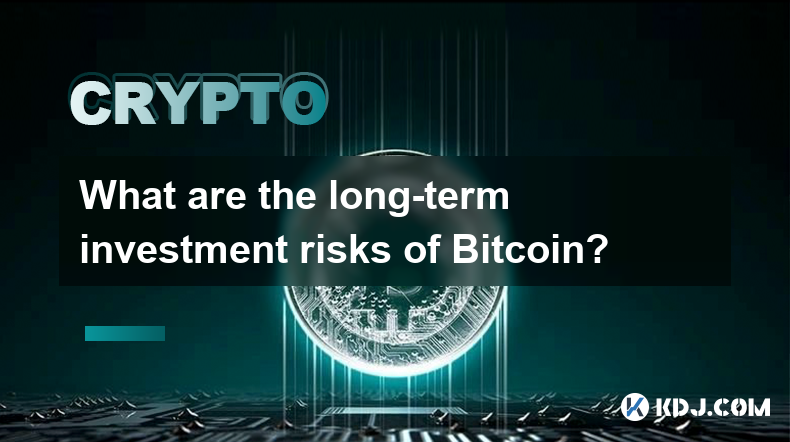
What are the long-term investment risks of Bitcoin?
Feb 22,2025 at 05:30pm
Key PointsVolatility and price fluctuationsRegulatory uncertaintySecurity risksCompetition from altcoinsMarket manipulation and scamsTransaction feesEnvironmental concernsLong-Term Investment Risks of BitcoinVolatility and Price FluctuationsBitcoin's high volatility is a double-edged sword. While it has the potential to generate substantial returns, it ...
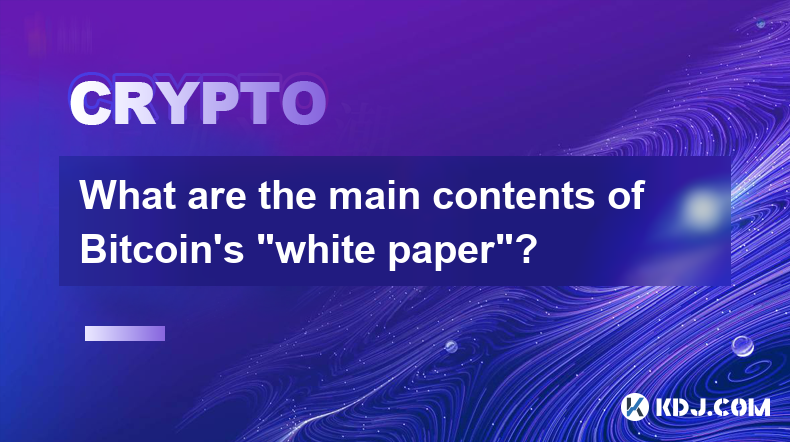
What are the main contents of Bitcoin's "white paper"?
Feb 21,2025 at 04:36am
Key Points:Understanding Bitcoin's Genesis: The White Paper's IntroductionA Decentralized Digital Currency: Bitcoin's Core ConceptBlockchain Technology: The Foundation of Bitcoin's Immutable LedgerProof-of-Work: Securing Bitcoin's NetworkThe Design of Bitcoin's Currency: Issuance, Scarcity, and DivisibilityBitcoin's Potential Applications and Future Pro...

How does Bitcoin's distributed ledger ensure consistency?
Feb 22,2025 at 10:06pm
Key Points:Bitcoin employs a distributed ledger, also known as a blockchain, to maintain a tamper-proof and consistent record of transactions.The blockchain is a decentralized network of computers that collectively validate and store transaction data.Bitcoin's distributed ledger ensures consistency through consensus mechanisms and cryptographic algorith...
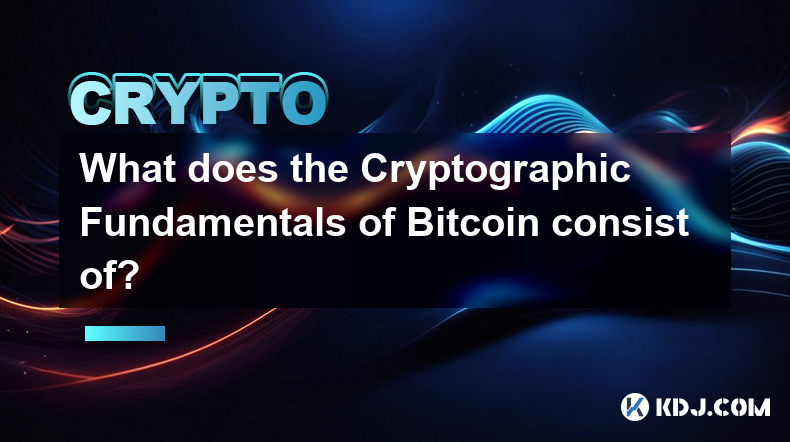
What does the Cryptographic Fundamentals of Bitcoin consist of?
Feb 21,2025 at 12:06pm
Key PointsUnderstanding the cryptographic algorithms used in BitcoinFamiliarization with the Bitcoin blockchain and its underlying mechanicsExamination of the security measures that protect Bitcoin from attackAnalysis of the decentralized nature of Bitcoin and its implicationsDiscussion of the scalability and transaction fee issues associated with Bitco...

What is Bitcoin's relationship with blockchain technology?
Feb 22,2025 at 07:00pm
Bitcoin's Intertwined Relationship with Blockchain TechnologyKey Points:Definition of blockchain technology and its decentralized natureBitcoin's utilization of blockchain for secure and immutable transactionsThe role of blockchain in verifying and confirming transactionsEvolution of blockchain technology beyond Bitcoin's cryptocurrency applicationsUnde...
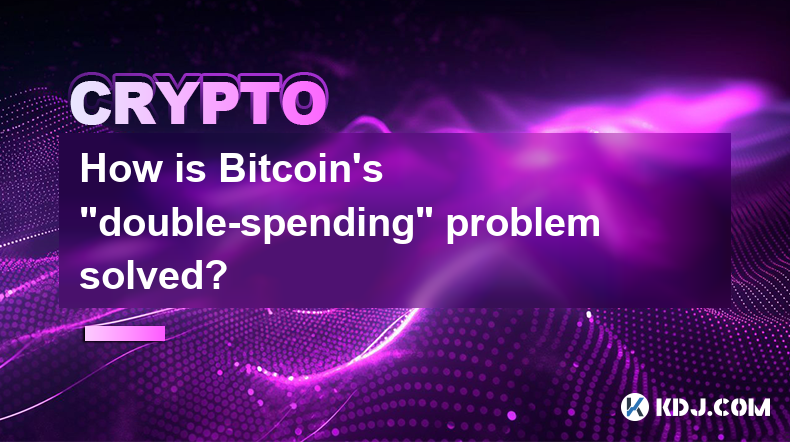
How is Bitcoin's "double-spending" problem solved?
Feb 23,2025 at 02:54am
Key Points:The double-spending problem refers to the potential for a digital currency transaction to be reversed, allowing the same funds to be spent multiple times.Bitcoin solves this problem through the use of a decentralized blockchain, a public ledger that records all transactions permanently and securely.The immutability and transparency of the blo...

What are the long-term investment risks of Bitcoin?
Feb 22,2025 at 05:30pm
Key PointsVolatility and price fluctuationsRegulatory uncertaintySecurity risksCompetition from altcoinsMarket manipulation and scamsTransaction feesEnvironmental concernsLong-Term Investment Risks of BitcoinVolatility and Price FluctuationsBitcoin's high volatility is a double-edged sword. While it has the potential to generate substantial returns, it ...

What are the main contents of Bitcoin's "white paper"?
Feb 21,2025 at 04:36am
Key Points:Understanding Bitcoin's Genesis: The White Paper's IntroductionA Decentralized Digital Currency: Bitcoin's Core ConceptBlockchain Technology: The Foundation of Bitcoin's Immutable LedgerProof-of-Work: Securing Bitcoin's NetworkThe Design of Bitcoin's Currency: Issuance, Scarcity, and DivisibilityBitcoin's Potential Applications and Future Pro...

How does Bitcoin's distributed ledger ensure consistency?
Feb 22,2025 at 10:06pm
Key Points:Bitcoin employs a distributed ledger, also known as a blockchain, to maintain a tamper-proof and consistent record of transactions.The blockchain is a decentralized network of computers that collectively validate and store transaction data.Bitcoin's distributed ledger ensures consistency through consensus mechanisms and cryptographic algorith...

What does the Cryptographic Fundamentals of Bitcoin consist of?
Feb 21,2025 at 12:06pm
Key PointsUnderstanding the cryptographic algorithms used in BitcoinFamiliarization with the Bitcoin blockchain and its underlying mechanicsExamination of the security measures that protect Bitcoin from attackAnalysis of the decentralized nature of Bitcoin and its implicationsDiscussion of the scalability and transaction fee issues associated with Bitco...

What is Bitcoin's relationship with blockchain technology?
Feb 22,2025 at 07:00pm
Bitcoin's Intertwined Relationship with Blockchain TechnologyKey Points:Definition of blockchain technology and its decentralized natureBitcoin's utilization of blockchain for secure and immutable transactionsThe role of blockchain in verifying and confirming transactionsEvolution of blockchain technology beyond Bitcoin's cryptocurrency applicationsUnde...

How is Bitcoin's "double-spending" problem solved?
Feb 23,2025 at 02:54am
Key Points:The double-spending problem refers to the potential for a digital currency transaction to be reversed, allowing the same funds to be spent multiple times.Bitcoin solves this problem through the use of a decentralized blockchain, a public ledger that records all transactions permanently and securely.The immutability and transparency of the blo...
See all articles










































































